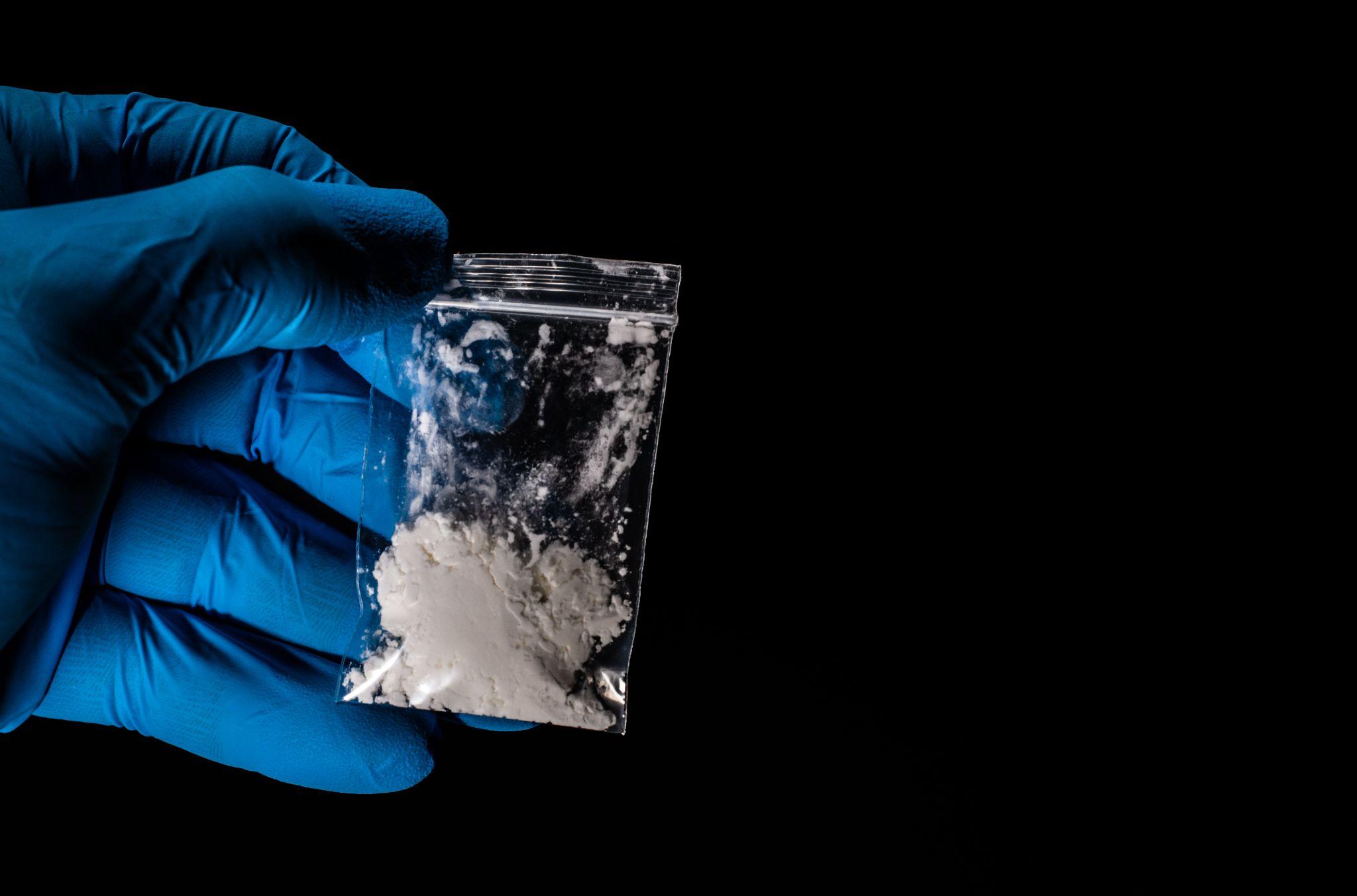
Our Addiction Resources
Navigating the world of addiction and recovery can be overwhelming. We’re here to provide clear, compassionate education and guidance. From practical advice for maintaining sobriety to informational guidance on the long-term effects of substance abuse, our content is a beacon of hope and understanding.
Our Team is Ready are ready to take your call
Call us Today!
or we can call you. Fill out form below
Our Blog

What Does a Drug Addict Look Like?
When you think of a drug addict, what comes to mind? Many people imagine a disheveled person on the streets, but this stereotype is far from accurate. Drug addiction affects people from all walks of life, and those who struggle with it can look very different from one another.
It is important to recognize the varied appearances of people with addictions, understand common stereotypes, be aware of the dangers of assuming that all drug addicts look a certain way, and know how to tell if someone is on drugs.
The Varied Faces of Drug Addiction
Drug addiction does not discriminate—it affects individuals from all walks of life, regardless of age, gender, ethnicity, or social status. You may encounter professionals, students, parents, retirees, or people from any background who are struggling with addiction. Each person’s journey with addiction is unique, shaped by their personal history, environment, and genetics.
Consider the professional who maintains a polished appearance and successful career but uses stimulants to stay awake and perform at high levels. Despite their professional demeanor, they could be battling a severe addiction in private.
A college student might start using Adderall or other prescription drugs to enhance academic performance, which can lead to dependency and addiction, even though they continue to attend classes and achieve good grades.
A parent might develop an addiction to opioids after being prescribed painkillers for a legitimate medical condition, continuing to care for their children and manage household responsibilities while masking their struggle.
An elderly person might become addicted to prescription medications meant to manage chronic pain or anxiety, and their addiction might go unnoticed because it’s assumed they’re simply following medical advice.
These examples illustrate that people with addictions can lead seemingly normal lives and may not exhibit the stereotypical signs of drug use. Recognizing this diversity is crucial in addressing addiction without prejudice, understanding that anyone can be affected by this complex and multifaceted issue.
The Harms of Stereotyping
Stereotyping people with drug addictions as fitting a specific look is not only inaccurate but also deeply harmful. When we assume that only disheveled individuals or those from certain backgrounds are affected by addiction, we overlook many who are suffering. This narrow view can prevent people from recognizing addiction in their loved ones or colleagues who do not fit the stereotype, thereby delaying critical intervention and support.
The stigma associated with drug addiction stereotypes can also lead to discrimination and social isolation for those affected. People who struggle with addiction may be reluctant to seek help due to fear of being judged or labeled. This can exacerbate their condition and create barriers to accessing treatment and support systems.
These stereotypes contribute to a lack of empathy and understanding in society, perpetuating the misconception that addiction is a moral failing rather than a complex health issue.
By broadening our understanding of what addiction looks like, we can foster a more inclusive and supportive environment for those seeking help. It is crucial to remember that addiction is a disease and anyone can be affected, regardless of their appearance or social status.

Signs of Drug Addiction
Recognizing the signs of a drug addict is crucial for early intervention and support. Drug addiction can manifest in various ways, affecting physical health, behavior, and daily functioning.
Understanding how to identify a drug addicted person involves being aware of a range of indicators that can signal a problem. Here are some signs that may indicate a drug problem:1
- Continued Use Despite Health Issues: Continuing to use a drug even after it is no longer needed for a medical condition.
- Increased Tolerance: Needing progressively larger amounts of the substance to achieve the same effects, and being able to consume more before feeling any impact.
- Withdrawal Symptoms: Experiencing discomfort when the drug’s effects wear off, such as shakiness, depression, nausea, sweating, headaches, fatigue, loss of appetite, confusion, seizures, or fever in severe cases.
- Inability to Stop: Finding it impossible to cease drug use despite wanting to, and continuing usage despite negative consequences like trouble with relationships, work, or legal issues.
- Preoccupation with the Drug: Spending significant time thinking about the drug, planning how to obtain it, and focusing on how it makes one feel.
- Loss of Control: Struggling to set limits on drug use, often consuming more than intended.
- Loss of Interest: Losing interest in activities that were once enjoyable.
- Neglect of Daily Activities: Difficulty performing normal daily tasks, such as cooking or working.
- Risky Behaviors: Engaging in dangerous activities, such as driving or operating heavy machinery, while under the influence of drugs.
- Financial Issues: Borrowing or stealing money to purchase drugs.
- Secrecy and Deception: Hiding drug use or its effects from others.
- Relationship Problems: Experiencing increased conflict with coworkers, teachers, friends, or family members, who may notice and complain about changes in behavior.
- Sleep and Appetite Changes: Significant changes in sleep patterns or appetite, such as sleeping or eating much more or less than usual.
- Physical Changes: Notable physical changes, such as bloodshot eyes, bad breath, shakes, tremors, frequent bloody noses, or significant weight changes.
- New Social Circles: Associating with new friends who use drugs and frequenting different places to use them.
- Doctor Shopping: Visiting multiple doctors to obtain prescriptions for the same drug or condition.
- Medication Misuse: Searching through others’ medicine cabinets for drugs or mixing prescribed medications with alcohol or other substances.
The Importance of Getting Help
Seeking help for drug addiction is vital for achieving lasting recovery and improving overall well-being. Early intervention can prevent the escalation of health issues, reduce the risk of legal and social consequences, and enhance the quality of life.
Professional treatment provides the necessary support, resources, and strategies to overcome addiction, addressing both physical and psychological aspects.
Additionally, getting help fosters a supportive environment where individuals can rebuild their lives, repair relationships, and develop healthy coping mechanisms. Remember, addiction is a treatable condition, and reaching out for help is a courageous and essential step toward recovery.
Finding Help and Hope for Drug Addiction With Lumina Recovery
Drug addiction does not have a specific look. By understanding the varied faces of addiction and focusing on behavioral and physical signs, we can better support those who need help. Remember, addiction is a disease, and everyone deserves compassion and support on their journey to recovery.
At Lumina Recovery, we provide support and specialized treatment programs for individuals facing a wide variety of drug addictions, helping them on their journey to recovery.
If you or a loved one is struggling with drug addiction, reach out to Lumina Recovery for the support and care you deserve.
Source:

How DBT Can Help You Overcome Addiction
Dealing with addiction is tough, whether you’re going through it yourself or watching a loved one struggle. Finding the right treatment can make a big difference in recovery. Dialectical behavior therapy (DBT) has shown great promise in helping people overcome addiction.
Understanding what DBT is, what’s involved in DBT, how it’s used as part of addiction treatment, and its benefits can help those struggling with addiction.
What Is DBT?
Dialectical behavior therapy (DBT) is a specialized form of cognitive behavioral therapy (CBT) that focuses on the psychosocial part of treatment. Psychologist Marsha Linehan created DBT in the 1970s originally to treat borderline personality disorder (BPD). Since then, it has been adapted and implemented for other conditions including addiction.1
The “dialectical” part of DBT refers to the synthesis of opposites, particularly the concepts of acceptance and change. DBT helps individuals accept their current reality while simultaneously working towards change. This balance is crucial in treating addiction, where acceptance of one’s circumstances and commitment to change are both necessary for recovery.
DBT focuses on four main areas:1
- Mindfulness: This core skill teaches individuals to be fully present in the moment, increasing awareness and reducing impulsivity.
- Distress Tolerance: These skills help individuals tolerate and survive crises without resorting to self-destructive behaviors.
- Emotional Regulation: This component involves understanding and managing intense emotions that might lead to substance use.
- Interpersonal Effectiveness: These skills help improve communication and relationship-building to foster supportive environments for recovery.
What’s Involved in DBT?
DBT involves a structured and multifaceted approach that integrates several key components to support individuals in their recovery journey. Here’s what is involved in DBT:
Individual Therapy
Clients participate in one-on-one sessions with a trained DBT therapist. These sessions are tailored to each individual’s needs and focus on specific problems related to addiction and emotional dysregulation. The therapist helps the client apply DBT skills to real-life situations, providing personalized guidance and support.
Group Skills Training
In addition to individual therapy, clients participate in group sessions to learn and practice DBT skills. These sessions are typically held weekly and cover the four main DBT skill areas. Group training allows clients to share experiences, offer mutual support, and learn from each other.
Phone Coaching
Between therapy sessions, clients have access to phone coaching for additional support. This service allows clients to reach out to their therapist during times of crisis or when they need help using their DBT skills in their day-to-day life. Phone coaching ensures that clients receive consistent support, helping them navigate challenging situations and reinforcing the skills they learn in therapy.
Therapist Consultation Team
Therapists practicing DBT are part of a consultation team that meets regularly to discuss their cases. These meetings help therapists stay motivated as well as ensuring that they deliver high-quality care to their clients. The consultation team approach fosters a collaborative and supportive environment for therapists, which, in turn, benefits clients.
Diary Cards and Homework
Clients use diary cards to track their emotions, urges, and behaviors daily. This practice helps clients and therapists identify patterns and triggers, making it easier to address underlying issues. Homework assignments are also a common part of DBT addiction recovery, allowing clients to practice skills between sessions and reinforce their learning.
How DBT Is Used in Addiction Treatment
DBT has been adapted to address the unique challenges of addiction. DBT for addiction focuses on helping individuals understand the underlying emotional issues that contribute to substance abuse. Here’s how DBT and addiction treatment work together:
Addressing triggers. DBT helps individuals identify and understand the triggers that lead to substance use. By recognizing these triggers, clients can develop strategies to manage them without turning to drugs or alcohol.
Building coping skills. DBT teaches practical skills for coping with stress, cravings, and negative emotions. These skills include mindfulness, distress tolerance, emotional regulation, and interpersonal effectiveness.
Reducing self-destructive behaviors. DBT aims to reduce self-destructive behaviors, such as substance abuse, by promoting healthier alternatives. Clients learn to replace harmful behaviors with positive ones that support their recovery.
Enhancing motivation. DBT treatment for addiction helps individuals stay motivated throughout their recovery journey. By setting achievable goals and celebrating progress, clients can maintain their commitment to sobriety.

10 Benefits of DBT for Addiction Recovery
DBT offers a range of benefits for those struggling with addiction. Here are some key advantages of using DBT therapy for addiction recovery:
- Long-Term Emotional Stability: DBT equips individuals with the skills needed to maintain emotional stability long-term. By continually practicing mindfulness and emotional regulation techniques, clients can achieve lasting emotional balance, which is crucial for sustained recovery.
- Improved Problem-Solving Skills: DBT enhances an individual’s ability to solve problems effectively. By learning to approach issues with a calm and rational mindset, clients can navigate challenges more successfully without substance use.
- Resilience Building: DBT fosters resilience by teaching individuals how to handle adversity and bounce back from setbacks. This resilience is vital in recovery, as it helps clients cope with the inevitable challenges and stressors that arise.
- Empowerment Through Self-Management: DBT encourages self-management and personal responsibility. Clients learn to take control of their recovery by actively applying DBT skills in their daily lives, leading to a greater sense of empowerment and autonomy.
- Enhanced Self-Esteem: Through DBT, individuals often experience an increase in self-esteem and self-worth. As they successfully manage their emotions and behaviors, they build confidence in their ability to maintain sobriety and improve their lives.
- Holistic Well-Being: DBT addresses various aspects of well-being, including emotional, mental, and social health. This holistic approach ensures that clients receive comprehensive care that supports their overall well-being and enhances their quality of life.
- Structured Framework: The structured nature of DBT provides clients with a clear framework for their recovery. This structure helps individuals stay focused and organized in their efforts to overcome addiction, providing a roadmap for their journey.
- Increased Adaptability: DBT helps individuals become more adaptable in the face of change. By learning to accept and navigate life’s uncertainties, clients can handle transitions and adjustments without reverting to substance use.
- Supportive Community: The group component of DBT fosters a sense of community and support among clients. Sharing experiences and learning from peers can be incredibly motivating and reassuring, reducing feelings of isolation.
- Focus on Acceptance and Change: DBT’s dual emphasis on acceptance and change helps clients find a balanced approach to recovery. By accepting their current state while working towards positive change, individuals can make meaningful progress without becoming overwhelmed.
Try DBT for Addiction Recovery Today With Lumina Recovery
Dialectical behavior therapy (DBT) is a powerful tool in the fight against addiction. By focusing on emotional regulation, stress management, and healthy relationships, DBT provides individuals with the skills they need to achieve and maintain sobriety.
At Lumina Recovery, we offer both dialectical behavior therapy (DBT) and cognitive behavioral therapy (CBT) to provide comprehensive support for addiction recovery.
Contact us today to learn more about integrating DBT into your personalized treatment plan.
Source:

Your Guide to Desoxyn Abuse
Desoxyn, a brand name for methamphetamine hydrochloride, is a powerful prescription medication often used to treat attention-deficit/hyperactivity disorder (ADHD).
While Desoxyn can be beneficial when used as prescribed, it carries a high potential for abuse and addiction. If you or a loved one is struggling with Desoxyn addiction, understanding its various aspects is crucial for seeking the right help and support.
What Is Desoxyn?
Desoxyn is a central nervous system stimulant that affects chemicals in the brain and nerves that contribute to hyperactivity and impulse control. The active ingredient in Desoxyn is methamphetamine hydrochloride, which belongs to a class of drugs known as sympathomimetic amines.1
Due to its potent effects and risk of dependency, Desoxyn is classified as a Schedule II controlled substance in the United States. This means it has a high potential for abuse, with use potentially leading to severe psychological or physical dependence. As a result, Desoxyn prescriptions are strictly regulated, and it is typically only prescribed when other treatment options have proven ineffective.1
Desoxyn Prescriptions and Medical Uses
Doctors prescribe Desoxyn pills for ADHD patients to help them focus better and control their behavior. ADHD is a condition characterized by symptoms such as difficulty maintaining attention, hyperactivity, and impulsiveness.2
For individuals with ADHD, Desoxyn can be a critical component of their treatment plan. The medication helps to balance brain chemicals, leading to improved focus and decreased hyperactive behaviors. This can significantly enhance the patient’s ability to function effectively in daily activities, including academic and professional tasks.
The prescription of Desoxyn for ADHD is carefully managed by healthcare providers. Patients are usually started on the lowest effective dose to minimize potential side effects and are regularly monitored to ensure the medication’s effectiveness and safety. Adjustments to the dosage may be made based on the patient’s response to the treatment and any side effects experienced.
Desoxyn Addiction Potential
Desoxyn has a high potential for addiction, which can develop even when it is taken as prescribed. This addiction potential stems from the drug’s ability to produce feelings of euphoria and increased energy, leading individuals to misuse it for recreational purposes.
Desoxyn addiction occurs when a person becomes physically and psychologically dependent on the drug, needing higher doses to achieve the same effects. The addiction potential of Desoxyn is similar to other forms of methamphetamine, making it a drug that requires careful monitoring.
Over time, the brain becomes accustomed to these elevated dopamine levels, leading to tolerance. Tolerance means that the user needs to take higher doses of Desoxyn to achieve the same euphoric effects, which can quickly lead to dependence and addiction.
Additionally, the psychological dependency on Desoxyn can be powerful. Users may feel that they cannot function normally without the drug, leading to compulsive use despite negative consequences. This psychological aspect of addiction can make quitting Desoxyn extremely challenging, as the individual feels an overwhelming need to continue using the drug to cope with daily life.
Side Effects of Desoxyn Abuse
Abusing Desoxyn can lead to severe physical and psychological side effects. These side effects can vary depending on the amount and duration of the abuse but commonly include:2
- Dry mouth, nausea, and upset stomach: These are common side effects that can occur even with prescribed use.
- Diarrhea or constipation: Digestive issues can result from Desoxyn use.
- Dizziness: Users may experience dizziness, particularly when standing up quickly.
- Weight loss: While it can aid in weight loss, prolonged use can lead to unhealthy weight loss and nutritional deficiencies.
- Trouble sleeping: Difficulty sleeping is a common side effect due to the drug’s stimulating effects.
- Headache: Headaches can occur, particularly as the body adjusts to the medication.
Withdrawal From Desoxyn
Withdrawal from Desoxyn can be challenging and requires medical supervision. The symptoms of withdrawal can be both physical and psychological, making it a difficult process to go through alone. Common withdrawal symptoms include:3
- Dysphoric mood: A general feeling of dissatisfaction and unease.
- Depression: A significant drop in mood and feelings of hopelessness.
- Fatigue: Extreme tiredness as the body adjusts to the absence of the stimulant.
- Vivid, unpleasant dreams: Intense and disturbing dreams.
- Insomnia or hypersomnia: Difficulty sleeping or excessive sleepiness.
- Increased appetite: The appetite-suppressing effects of the drug wear off, leading to increased hunger.
- Psychomotor agitation: Slowed physical movements or restlessness and agitation.

Getting Help for Desoxyn Addiction
If you or a loved one is struggling with Desoxyn addiction, seeking professional help is crucial. Start by contacting a healthcare provider or addiction specialist who can assess your situation and recommend appropriate treatment options.
Treatment for Desoxyn addiction often includes a combination of detoxification, behavioral therapy, and support groups. Detoxification helps manage withdrawal symptoms under medical supervision, ensuring that the process is as safe and comfortable as possible. This initial phase is critical for breaking the physical dependence on Desoxyn.
Behavioral therapy addresses the psychological aspects of addiction, helping individuals understand the root causes of their drug use and develop healthier coping mechanisms. Cognitive behavioral therapy (CBT) is commonly used and has proven effective in treating stimulant addiction.
Support groups provide a community of individuals who understand your struggles and can offer encouragement and accountability. Groups such as Narcotics Anonymous (NA) offer a supportive environment where individuals can share their experiences and support one another in recovery.
Overcome Desoxyn Addiction With Lumina Recovery
Desoxyn abuse is a serious issue that can have devastating effects on an individual’s health and well-being. Understanding the medical uses, addiction potential, side effects, and withdrawal symptoms of Desoxyn is crucial for those who may be struggling with addiction or are concerned about a loved one.
Lumina Recovery’s specialized programs are available to help diverse groups of people struggling with meth addiction. With the right support and treatment, recovery is possible, and individuals can regain control of their lives.
If you or someone you know is battling Desoxyn addiction, get in touch with us to find out how we can help.
Sources:

Nucynta Addiction: What You Need to Know
Nucynta, also known by its generic name tapentadol, is a prescription pain medication. It is often prescribed to manage moderate to severe pain.
Like many pain medications, Nucynta has a potential for addiction. Understanding Nucynta addiction is crucial for those using the medication and their loved ones.
What Is Nucynta?
Nucynta is a synthetic opioid that works by altering the way the brain and nervous system respond to pain. Doctors prescribe Nucynta for patients who need pain relief that cannot be managed by other medications.
Nucynta is similar to other opioids, such as oxycodone and morphine, but it has a unique mechanism of action. It not only acts on opioid receptors but also inhibits the reuptake of norepinephrine. This dual action makes it effective for pain relief but also increases the risk of addiction.1
How Addictive Is Nucynta?
Nucynta has a significant addiction potential. It is classified as a Schedule II controlled substance, which indicates a high potential for abuse and addiction. Like other opioids, Nucynta can lead to physical dependence and addiction when used for an extended period or in higher doses than prescribed.1
Regular use of Nucynta, even as prescribed, can lead to tolerance. Tolerance means that over time, the same dose of the medication will have less effect. This often leads users to take higher doses to achieve the same level of pain relief or euphoria, which increases the risk of addiction. The process of developing tolerance and dependence can happen quickly, sometimes within a few weeks of regular use.
Once physical dependence develops, stopping Nucynta abruptly can lead to withdrawal symptoms. This can create a cycle of dependency where the individual continues to use the medication to avoid withdrawal symptoms. Psychological dependence can also occur, where the individual feels a compulsive need to use the drug, even if it is causing harm.
Nucynta Side Effects
Abuse of Nucynta can lead to a range of side effects, both physical and psychological. Nucynta side effects can vary in severity depending on the amount of the drug used and the duration of abuse.
Some common physical side effects of Nucynta abuse include:2
- Nausea and Vomiting: These are common side effects of many opioids, including Nucynta.
- Dizziness and Drowsiness: Nucynta can cause significant sedation, which can impair coordination and increase the risk of accidents.
- Constipation: Opioids commonly cause constipation due to their effects on the digestive system.
- Headache: Some individuals may experience headaches while taking Nucynta.
- Sweating and Flushing: Increased sweating and a sensation of warmth can occur with Nucynta use.
Withdrawal Symptoms
Withdrawal from Nucynta can be challenging and uncomfortable. When a person becomes dependent on Nucynta, their body adapts to the presence of the drug. If they suddenly stop taking it, they can experience withdrawal symptoms. These symptoms can range from mild to severe and can include both physical and psychological effects:1,2
Physical Withdrawal Symptoms
- Restlessness: Individuals may feel agitated and unable to relax.
- Muscle and Bone Pain: Aching muscles and joints are common during withdrawal.
- Insomnia: Difficulty falling or staying asleep is a frequent issue.
- Vomiting: Nausea and vomiting are common symptoms of opioid withdrawal.
- Cold Flashes: Chills and cold flashes with goosebumps can happen.
- Sweating: Excessive sweating is a typical withdrawal symptom.
- Yawning: Frequent yawning is another common sign of opioid withdrawal.
Psychological Withdrawal Symptoms
- Intense Cravings: A strong desire to use Nucynta again is the main sign of withdrawal.
- Anxiety: Feelings of worry and nervousness can be heightened.
- Depression: Withdrawal can lead to feelings of sadness and hopelessness.
- Irritability: Individuals may become easily annoyed or angered.
The severity of withdrawal symptoms can depend on several factors, including the length of time the drug was used, the dosage, and the individual’s overall health. Withdrawal can begin as soon as a few hours after the last dose and can last for several days to weeks. Psychological symptoms such as cravings and depression can persist for longer and may require ongoing support to manage.

Getting Help for Nucynta Addiction
If you or a loved one is struggling with Nucynta addiction, seeking professional help is crucial. Begin by consulting a healthcare professional who can provide a thorough assessment and recommend appropriate treatment options.
Medically assisted detoxification may be necessary to manage withdrawal symptoms safely. Treatment options include inpatient rehabilitation, which offers intensive, structured care, and outpatient programs that allow individuals to continue living at home or in a sober living facility while receiving treatment.
Counseling and behavioral therapies, such as cognitive behavioral therapy (CBT), can address the underlying causes of addiction and help develop coping strategies. Support groups, such as Narcotics Anonymous (NA), offer peer support and encouragement throughout the recovery process.
Building a strong support system of friends, family, and peers is essential for successful recovery. Developing a relapse prevention plan with a healthcare professional can help identify triggers and establish strategies to manage cravings and stress.
Engaging in self-care activities, such as regular exercise, healthy eating, and mindfulness practices, can support overall well-being. Recovery from Nucynta addiction is a continuous journey that requires dedication and effort, but with the right support and resources, achieving and maintaining sobriety is possible.
Need Help for Nucynta Abuse? Lumina Recovery Is Here
Nucynta medication can provide significant pain relief for those in need. However, its potential for addiction is high, and it is essential for users and their loved ones to be aware of this risk. Understanding what Nucynta is, its addiction potential, the side effects of abuse, and the withdrawal symptoms can help individuals make informed decisions about their use of the medication.
Lumina Recovery provides detoxification, medication-assisted treatment, and other programs to help those addicted to opioids. Addiction can be managed and treated with the right support and resources.
If you or a loved one is struggling with Nucynta addiction, reach out to our team of professionals for help.
Sources:

What You Should Know About the Fentanyl Crisis in America
More than 1,500 people in the United States die per week from taking some type of opioid, mainly fentanyl. These drugs are the leading cause of fatal overdoses in the country, creating the worst drug crisis in history. In recent years, the crisis has become defined by illicit fentanyl, an extremely lethal synthetic opioid.1
Understanding what fentanyl is, why it’s so dangerous, and the current state of the fentanyl epidemic is crucial for anyone affected by addiction or concerned about a loved one’s health and well-being.
What Is Fentanyl?
Fentanyl is a synthetic opioid that is 50 to 100 times more potent than morphine. It was first synthesized in the 1960s for medical use, specifically for pain relief in patients undergoing surgery or suffering from severe pain, such as cancer patients.
Fentanyl operates by attaching to the body’s opioid receptors, located in parts of the brain that regulate pain and emotions. When fentanyl binds to these receptors, it can produce intense feelings of euphoria and relaxation, which makes it highly addictive.
Why Is Fentanyl So Dangerous?
Fentanyl’s extreme potency makes it both highly addictive and deadly. A lethal dose requires just two milligrams of the drug. This amount of fentanyl is roughly equivalent to ten to fifteen grains of table salt.
This extreme potency, combined with its widespread presence in drug trafficking, continues to fuel the public health fentanyl crisis and drive the unprecedented number of those dying of drug overdoses in the United States.1
Illicitly manufactured fentanyl is increasingly being mixed with other drugs, including heroin, cocaine, and methamphetamines without the user’s knowledge. It is also being incorporated into counterfeit prescription pills that resemble legitimate medications, such as OxyContin, Vicodin, and Valium.2
Its effects on the body are swift. It quickly binds to the brain’s opioid receptors, leading to rapid onset of symptoms such as slowed or stopped breathing, unconsciousness, and, if not treated promptly, death. The speed and severity of these effects leave little time for intervention, making fentanyl overdoses particularly deadly.
The Fentanyl Epidemic in America
The fentanyl crisis has escalated dramatically over the past decade, becoming a significant driver of overdose deaths in the United States. Synthetic opioids, such as fentanyl, are responsible for almost 70% of all overdose fatalities.3
The rates of overdose deaths involving synthetic opioids, primarily fentanyl, have surged alarmingly. From 2021 to 2022, there was a 4% increase in such deaths. Comparatively, the rate of overdose deaths involving synthetic opioids in 2022 was nearly 25 times higher than in 2010. In 2022 alone, around 74,000 drug overdose deaths involved synthetic opioids.3
The COVID-19 pandemic has further exacerbated the opioid crisis. Disruptions to supply chains forced people to turn to unfamiliar drugs, and social-distancing measures led more individuals to use drugs alone, increasing the risk of overdosing.1
Additionally, the growing availability of illicit fentanyl, often disguised as legal prescription opioids by drug cartels, has worsened the crisis. In 2022, the Drug Enforcement Administration (DEA) seized over 50 million fentanyl-laced, fake prescription pills, more than double the amount seized the previous year. Over half of the counterfeit pills tested by the DEA contained potentially lethal amounts of fentanyl.4
In 2023, the DEA confiscated over 80 million counterfeit pills laced with fentanyl and nearly 12,000 pounds of fentanyl powder, amounting to more than 381 million lethal doses. The fentanyl seizures in 2024 represent more than 214 million deadly doses.5
Fentanyl’s extreme potency and the widespread distribution of illicit supplies have created an unprecedented public health emergency. This synthetic opioid, which can be deadly even in minute quantities, has permeated communities across the nation.
Its presence in various illicit drugs, often unbeknownst to users, significantly increases the risk of accidental overdose. As a result, the fentanyl crisis has not only impacted individuals and families but has also strained state and local healthcare systems, law enforcement, and community resources.

5 Ways to Protect Yourself From Fentanyl
Given the widespread presence and extreme potency of fentanyl, it’s essential to take proactive steps to protect yourself and your loved ones from its dangers. Here are several measures you can take:
1. Educate Yourself and Others
Understanding the risks associated with fentanyl is the first step in protecting yourself. Educate yourself about what fentanyl is, how it is used, and the dangers it poses. Share this information with friends and family to ensure they are also aware of the potential risks.
2. Avoid Illicit Drugs
The most effective way to protect yourself from fentanyl is to avoid using illicit drugs altogether. Abstaining from illicit drug use eliminates the risk of accidental fentanyl exposure.
3. Be Cautious With Prescription Medications
Only use prescription medications prescribed by a healthcare provider and obtained from a licensed pharmacy. Be wary of buying prescription pills from any other source, as counterfeit medications laced with fentanyl are becoming increasingly common.
4. Carry Naloxone
Naloxone is a medication that can rapidly reverse an opioid overdose. If you or someone you know is at risk of opioid overdose, carrying naloxone and knowing how to use it can save lives. Many states have laws that make naloxone available without a prescription.
5. Seek Help for Addiction
If you are struggling with addiction, seeking professional help is crucial. Treatment options, such as medically assisted detox, counseling, and support groups, can help you overcome addiction and reduce the risk of overdose.
Find Help for Fentanyl Addiction With Lumina Recovery
By increasing awareness, expanding access to treatment, and implementing harm reduction strategies, we can work together to address this devastating fentanyl crisis in America.
Lumina Recovery offers fentanyl and opioid addiction treatment services, including medication-assisted therapy, dual diagnosis support, and group therapy to help individuals achieve lasting recovery.
Reach out to Lumina Recovery today to get the help you or a loved one needs to overcome fentanyl addiction and start your path to recovery.
Sources:
- https://www.cfr.org/backgrounder/fentanyl-and-us-opioid-epidemic
- https://www.yalemedicine.org/news/fentanyl-driving-overdoses
- https://www.cdc.gov/overdose-prevention/about/fentanyl.html
- https://www.dea.gov/press-releases/2022/12/20/drug-enforcement-administration-announces-seizure-over-379-million-deadly
- https://www.dea.gov/onepill

How to Help Someone in Denial of Their Addiction
Dealing with a loved one who is struggling with addiction can be incredibly challenging, especially when they are in denial about their problem. Denial is a powerful defense mechanism that often prevents individuals from recognizing the severity of their addiction. Understanding what denial looks like, why it occurs, and how to approach someone in denial can make a significant difference in guiding them toward recovery.
What Does Denial in Addiction Look Like?
Denial in addiction is often characterized by a refusal to acknowledge the impact of substance abuse on one’s life. This can manifest in several ways:
- Minimization: Downplaying the severity or consequences of their substance use.
An example of this might be someone saying, “I only drink a little bit to relax after work, it’s not a big deal,” even though their drinking has led to missed workdays and strained relationships.
- Rationalization: Offering justifications or excuses for their behavior.
A person might rationalize their behavior by insisting, “I need to use drugs to cope with my stressful job; it’s the only way I can handle the pressure,” rather than seeking healthier coping mechanisms.
- Blame-shifting: Holding others responsible for their addiction or related problems.
An example of blame-shifting could be someone claiming, “I wouldn’t need to drink if my partner wasn’t so demanding,” avoiding responsibility for their actions.
- Avoidance: Refusing to discuss or confront their substance use disorder.
You might notice avoidance if a person becomes defensive or changes the subject whenever their substance use is mentioned, saying things like, “Let’s talk about something else,” or “You’re overreacting.”
Recognizing these signs is crucial, as denial often serves as a barrier to seeking treatment and achieving recovery.
Reasons Someone Might Be in Denial
Understanding why an addicted person might be in denial is key to addressing it effectively. Here are some common reasons:
- Fear of Stigma: The social stigma surrounding addiction can make individuals reluctant to admit their problem.
An example of this might be a person who avoids seeking help because they worry about being judged or ostracized by friends, family, or colleagues, fearing labels like “drug addict” or “alcoholic.”
- Fear of Change: The prospect of giving up their substance of choice can be daunting, leading to denial as a coping mechanism.
Someone might say, “I can’t imagine life without drinking,” illustrating how the fear of losing a familiar coping strategy keeps them from acknowledging their addiction.
- Lack of Awareness: Some individuals may genuinely not recognize their behavior as problematic.
For example, a person might not see their daily use of prescription medication as an issue because it was initially prescribed by a doctor, not realizing the potential for dependency and abuse.
- Emotional Pain: Confronting drug abuse often involves facing underlying emotional issues, which can be overwhelming.
An individual might avoid acknowledging their addiction because it requires confronting painful memories or trauma, saying things like, “I can’t deal with my past right now.”
By empathizing with these underlying fears and challenges, you can approach your loved one with greater compassion and understanding.
How to Approach Someone in Denial
Approaching someone in denial requires sensitivity, patience, and a well-thought-out strategy. Here are some steps to consider:
- Educate yourself. Learn about addiction and its psychological aspects. Understanding the nature of addiction can help you communicate more effectively.
- Consider the time and place. Choose a quiet, private setting where you can talk without being interrupted or distracted. Avoid approaching them when they are under the influence.
- Express concern, not judgment. Use “I” statements to express your concerns, such as “I’m worried about you because…” rather than accusing them of having a problem.
- Listen actively. Encourage them to share their feelings and perspectives. Listening without judgment can help them feel heard and understood.
- Offer support and encouragement. Reassure them that seeking help is a brave step and that you will support them throughout their recovery journey.

What to Do If They Refuse Help
It can be disheartening if your loved one refuses help, but it’s important to remain patient and persistent. Here are some steps you can take:
- Set boundaries. Clearly communicate your boundaries regarding their behavior and stick to them. This might involve refusing to enable their addiction by providing financial support or covering up for them.
- Seek professional advice. Consider speaking with an addiction specialist or therapist for guidance on how to handle the situation.
- Encourage professional help. Gently suggest seeing a therapist or attending support group meetings, even if they are not yet ready for rehab.
- Practice self-care. Supporting someone in denial can be emotionally draining. Ensure you take care of your own mental and physical well-being by seeking support for yourself.
How to Support Them in Recovery
Once your loved one begins to acknowledge their addiction and seeks help, your support remains crucial. Here’s how you can assist them in their recovery journey:
- Celebrate small victories. Acknowledge and celebrate their progress, no matter how small. This encouragement can boost their motivation and confidence.
- Stay informed. Continue learning about addiction recovery processes to better understand what they are going through.
- Be patient and understanding. Recovery is a long and challenging process with potential setbacks. Offer patience and understanding as they navigate their journey.
- Encourage healthy habits. Support them in adopting a healthier lifestyle by encouraging activities like exercise, meditation, and nutritious eating.
- Stay involved. Attend family therapy sessions or support groups with them to demonstrate your commitment to their recovery.
Get Help for Addiction at Lumina Recovery
Helping someone in denial about their addiction can be incredibly challenging, but you don’t have to face it alone. At Lumina Recovery, we understand the complexities of addiction and offer comprehensive drug and alcohol programs tailored to meet the unique needs of each individual.
Our dual diagnosis program is designed to address not only the addiction itself but also any underlying mental health conditions that may contribute to substance abuse. By treating both simultaneously, we aim to provide a more holistic and effective approach to recovery.
Additionally, our family therapy option emphasizes the importance of healing and rebuilding family relationships. We believe that involving family members in the recovery process can significantly enhance the chances of long-term success and create a supportive environment for everyone involved.
If you or someone you love is struggling with addiction, contact Lumina Recovery today to learn more about our personalized treatment options and start the journey toward a healthier, more fulfilling life.

Dilaudid Addiction Explained
Dilaudid addiction is a serious and potentially life-threatening condition. Understanding what Dilaudid is, why it is misused, and how to identify and treat addiction is crucial for those affected and their loved ones.
What Is Dilaudid?
Dilaudid, also known generically as hydromorphone, is a strong opioid pain medication. It is usually prescribed for severe pain that other medications can’t manage. Dilaudid works by changing how the brain and nervous system respond to pain. It is often given in a hospital setting but can also be prescribed for at-home use in cases of chronic pain.
What Is Dilaudid Used for and Why Do People Misuse It?
Dilaudid is mainly used to treat severe pain, like cancer pain or pain after surgery. It works quickly and effectively, making it very useful for patients in serious pain. However, because Dilaudid is so strong, some people misuse it to get high. Misuse can occur when the drug is taken in higher doses than prescribed, or through methods like snorting or injecting, which increase its euphoric effects. This misuse can lead to dependence and addiction very quickly due to the drug’s potency.
Signs of Dilaudid Addiction
Dilaudid addiction can show up in many ways, both physically and mentally, as well as in behavior. Recognizing these signs early can help in getting the right help. Addiction to Dilaudid can develop rapidly, often without the individual realizing the severity of their dependence. The following effects and behavioral red flags can help identify when someone is struggling with Dilaudid addiction:1,2
Short-Term Effects
- Feeling very happy (euphoria)
- Feeling very sleepy
- Nausea and vomiting
- Constipation
- Slow breathing
- Confusion
- Mood swings
- Anxiety or feeling very nervous
Long-Term Effects
- Needing more of the drug to feel the same effect (tolerance)
- Feeling sick without the drug (dependence)
- Very slow breathing (respiratory depression)
- Damage to organs like the liver and kidneys
- Depression
- Problems with thinking clearly
- Memory loss
Behavioral Red Flags for Dilaudid Addiction
Behavioral signs of Dilaudid addiction may include:
- Going to many doctors to get more prescriptions
- Stealing or borrowing medication from others
- Ignoring responsibilities at work, school, or home
- Staying away from friends and family
- Lying about drug use
Dilaudid Abuse Poses Serious Risks
Misusing Dilaudid is very dangerous. It can lead to addiction, serious health problems, and even death from overdose. The risks associated with Dilaudid abuse are heightened due to its potency and the potential for misuse. Understanding these risks is crucial for preventing and addressing addiction.
Addiction Potential
Dilaudid is very addictive because it strongly affects the brain’s reward system. Even people who take it as prescribed can become addicted if they start misusing it. Addiction can develop quickly, especially if the drug is taken in higher doses or through methods that enhance its effects, such as snorting or injecting.
Mixing Dilaudid With Other Substances
Using Dilaudid with other substances, especially alcohol, is very dangerous. Both Dilaudid and alcohol slow down the central nervous system, which can stop breathing and lead to death. Combining Dilaudid with other depressants, like benzodiazepines, also increases the risk of severe respiratory depression and overdose.
Potential for Overdose
Overdosing on Dilaudid is a critical issue because it can quickly lead to life-threatening conditions. The main problem with overdose is that Dilaudid, like other opioids, depresses the respiratory system. When taken in high doses, it can slow down breathing to the point where it stops entirely, which can lead to brain damage or death due to lack of oxygen. Overdosing is especially dangerous because the signs can progress rapidly and are often not recognized until it is too late.
Signs of a Dilaudid overdose include:1
- Extreme drowsiness
- Very slow or difficult breathing
- Being unresponsive
- Cold, clammy skin
- Narrowed or widened pupils
If someone is overdosing on Dilaudid, call emergency services immediately. Using naloxone (Narcan) can help reverse the overdose while waiting for help to arrive. Prompt medical attention is crucial to prevent serious complications or death.

Treatment for Dilaudid Addiction
Treating Dilaudid addiction involves a mix of medical, therapeutic, and supportive care. Effective treatment addresses both the physical and mental parts of addiction. A comprehensive approach ensures that all aspects of the addiction are treated, promoting long-term recovery.
Medically Assisted Detox
Medically assisted detox is often the first step in treating Dilaudid addiction. This process helps patients safely withdraw from Dilaudid under medical supervision. Detox involves managing opioid withdrawal symptoms and ensuring the patient is stable before moving on to further treatment.
Residential Treatment Programs
Residential treatment programs provide a structured environment where patients can focus on recovery. These programs offer intensive therapy and support, including individual and group counseling, to help patients understand their addiction and develop coping strategies.
Partial Hospitalization Programs (PHP)
Partial hospitalization programs (PHPs) provide comprehensive care, with patients receiving medical and therapeutic services during the day. Participants can choose to live at home or in a sober living facility, allowing them to balance intensive treatment with maintaining some daily responsibilities.
Intensive Outpatient Programs (IOP)
Intensive outpatient programs (IOP) allow patients to receive treatment while continuing with most daily activities. IOPs include regular therapy sessions and group support, offering greater flexibility compared to PHPs for those who need structured care but require a less intensive schedule.
Start Over with Dilaudid Addiction Treatment at Lumina Recovery
Lumina Recovery is an experienced and compassionate rehab facility specializing in Dilaudid addiction and other substance abuse problems. We understand the complexities of addiction and the critical importance of medically assisted detox. Our detox programs ensure that patients can safely withdraw from Dilaudid under the careful watch of our healthcare professionals, providing the necessary medical support and comfort throughout the process.
At Lumina Recovery, we offer 24/7 residential care, dual-diagnosis treatment, and individualized treatment plans tailored to each patient’s unique needs. We also provide medication-assisted treatment (MAT) to help manage cravings and withdrawal symptoms. Our experienced staff provides a structured, supportive environment where patients can focus entirely on their healing journey.
Our team is ready to support you through every stage of recovery, from detox to long-term sobriety. Reach out now to begin your path to a healthier, drug-free life and regain control of your future.
Sources:

How to Help Your Adult Child With Their Addiction
Being the parent of an adult child struggling with addiction can feel like an emotional roller coaster. The constant anxiety about potential crises—whether hospitalization, overdose, or worse—can be overwhelming. You might experience profound shame and helplessness, feeling as though you’ve lost your child and are powerless to make a difference.
You may also face the painful reality of a child who denies their addiction or refuses treatment, leaving you torn between stepping back to let them face the consequences or staying supportive and loving without judgment. It’s important to move beyond feeling hostage to addiction and find a path that encourages healing and hope for both you and your child.
How to Approach Your Adult Child About Their Addiction
Addressing substance abuse can be delicate due to the powerful defense mechanisms often involved. To maintain a positive relationship and avoid conflict, consider these strategies:
- Avoid confrontational approaches. Direct confrontation can trigger defensiveness, shame, and guilt, which can break down communication. Instead, use a therapeutic approach: highlight how their behavior conflicts with their personal goals and prevents them from achieving what they truly want.
- Understand their goals. Focus on understanding what your child truly desires in life, rather than imposing your own expectations. If their current behavior hinders their aspirations and dreams, gently help them see this misalignment without making them feel attacked.
- Start with open-ended questions. Sometimes, a brief, non-intrusive comment can be more effective than a lengthy discussion. Ask open-ended questions that prompt reflection, such as, “Do you think your anxiety is better or worse than last year?” This method allows them to consider how their substance use affects their well-being.
- Empathize and reflect. Acknowledge any short-term relief they might get from their behavior, while gently pointing out the long-term consequences. For example, say, “I understand that having drinks after work helps you relax after a hard day, but I’ve noticed it often leaves you tired and struggling to get up early. Do you think this approach is working well in the long run?”
- Do your research. Understand how substances affect mental and physical health. For instance, while alcohol or marijuana may initially seem to relieve anxiety, they can increase anxiety over time as the brain compensates. Gently explain this process to help clarify how addiction develops and highlight the importance of breaking the cycle.
- Be mindful of your feedback. Offer observations with empathy and support, avoiding judgment. You might say, “I’m here to help you find better ways to manage your anxiety.” Make it clear that your feedback comes from a place of care, such as, “I’m sharing this because I want to see you feel better.” Allow space for them to respond and listen actively, demonstrating that you value their perspective.
By approaching your son or daughter with empathy, understanding, and clear communication, you create a supportive environment that encourages them to seek help and work toward recovery.
How to Set Boundaries When Your Adult Child Has an Addiction
Setting healthy boundaries with an addicted child is vital for your mental, physical, and financial well-being. Effective boundary-setting involves understanding your child’s behavior and clearly communicating your limits. This helps maintain your self-worth and prevents you from being hurt, used, or manipulated. Make it clear that you will support their recovery but will not enable their addiction.
Dealing With Guilt
Feeling guilty about setting boundaries is natural. You might fear that withdrawing support will lead them to end up on the street or worse. However, maintaining these boundaries is crucial, as they create an opportunity for your child to eventually seek and embrace recovery.
It’s important to have realistic expectations, as someone struggling with addiction may find it challenging to meet them. Aim for a balanced approach—not too lenient, not too rigid. Finding this middle ground is hard but rewarding, and it can help preserve your relationship.
Practical Steps for Setting Boundaries
- Differentiate boundaries from ultimatums. Ensure you are setting boundaries rather than trying to control your adult child. Frame boundaries around your actions and self-care, not demands on their behavior. For example, say, “I need to limit my interactions when substance use is involved to maintain a healthy environment for myself,” instead of, “If you don’t stop drinking, I won’t have any contact with you.”
- Start soft, then escalate. Begin with gentler boundaries and gradually enforce stricter ones if necessary. For example, start by withdrawing financial support. If your child continues to use drugs or alcohol, progressively restrict privileges, such as limiting access to the car or the family home.
- Be united in the boundaries. As parents of a loved one with addiction, it is crucial to present a united front. Discuss and set boundaries together, and once decided, adhere to them firmly. It may be tempting to give in to avoid arguments or stress, but staying consistent strengthens your relationship with your child and helps build trust.
By setting and maintaining healthy boundaries, you protect yourself while encouraging your loved one to seek the help they need.

How to Support Your Adult Child in the Recovery Process
Recovering from the effects of substance use within a family can be a heart-wrenching journey, but with patience and persistence, trust can gradually be restored. Family involvement is crucial to your adult child’s recovery. Here’s how you, as parents, can support them:
- Show unconditional love. Express your love and belief in their ability to recover. Your support should remain constant, regardless of their progress or setbacks.
- Encourage professional help. Support your child’s participation in therapy, counseling, support groups, or rehab programs.
- Be patient. Recognize that recovery is a long, non-linear process. Be patient and avoid pressuring them to change quickly.
- Communicate openly. Maintain open, non-judgmental communication. Listen to their concerns and feelings without offering unsolicited advice or criticism.
- Celebrate small wins. Acknowledge and celebrate their achievements, no matter how small. Positive reinforcement can encourage continued progress.
- Educate yourself. Learn about addiction and recovery to better understand their challenges and how to best support them.
Healing Together: Family Therapy at Lumina Recovery
At our addiction treatment centers, we believe in the power of strategic family therapy. This approach gives each family member a voice and helps the entire family navigate the healing process together. As one person heals, the entire family has the opportunity to grow stronger.
A trained family therapist provides deeper insights into substance use disorders and integrates your family into the treatment process, cultivating a more supportive environment.
Reach out to our team today. We are here to walk alongside you and your loved ones, offering unwavering support and care on your recovery journey.

Cognitive Behavioral Therapy (CBT) for Addiction Recovery
Addiction is a challenging and often overwhelming experience. Whether you are struggling with drug and alcohol addiction yourself or are concerned about a loved one, understanding the various forms of treatment available can be a crucial step toward recovery.
One effective and widely used approach is cognitive behavioral therapy (CBT). We will explore what CBT is, how it is used in substance abuse recovery, and the benefits it offers to those on their journey to recovery.
What Is CBT?
Cognitive behavioral therapy is an evidence-based type of psychotherapy that works by recognizing and altering negative thought patterns and behaviors. Dr. Aaron T. Beck developed CBT in the 1960s when he realized that our thoughts, feelings, and behaviors are interconnected. By addressing and altering distorted thinking, individuals can improve their emotional state and behavior.1
CBT is a structured, goal-oriented therapy that is typically short-term, ranging from a few weeks to several months. It is based on the idea that our thoughts influence our feelings and behaviors, and by changing our thought patterns, we can alter our emotional responses and actions.
Key Components of CBT
- Cognitive Restructuring: This process includes recognizing and questioning negative or irrational thoughts and creating positive and realistic alternatives. For example, if a person believes “I am worthless without drugs,” CBT helps them recognize this as a distorted thought and replace it with a healthier belief, such as “I have value and can find healthy ways to cope.”
- Behavioral Activation: This component focuses on changing behaviors to improve mood and functioning. It involves engaging in positive activities that provide a sense of accomplishment and pleasure, which can help counteract the negative feelings associated with addiction.
- Skill Building: CBT teaches practical skills to manage stress, cravings, and other triggers. These skills include problem-solving techniques, relaxation exercises, and strategies for improving communication and assertiveness.
- Exposure Therapy: In some cases, CBT may involve gradually exposing individuals to situations or triggers they fear or avoid. This exposure helps reduce anxiety disorders and avoidance behaviors, empowering individuals to face their challenges more effectively.
- Mindfulness and Relaxation Techniques: These techniques help individuals stay present and calm, reducing the impact of stress and anxiety. Mindfulness practices, such as deep breathing and meditation, are often incorporated into CBT to enhance overall well-being.
How Is CBT Used in Addiction Recovery?
CBT is an effective tool for addiction treatment, including substance use disorders, gambling addiction, and mental health conditions. The therapy focuses on understanding the triggers that lead to addictive behaviors, and people learn strategies to cope with these triggers without resorting to substance use or other harmful behaviors.
Identifying triggers. CBT helps individuals identify the specific situations, people, or emotions that trigger their addictive behaviors. Understanding these triggers is the first step in developing strategies to manage them. For example, someone might recognize that they are more likely to use substances when they are stressed or around certain friends.
Challenging negative thoughts. Many people with addiction struggle with negative thought patterns such as “I can’t cope without drugs” or “I’m a failure.” CBT helps individuals challenge these thoughts and replace them with more positive and realistic ones. By learning to think differently about themselves and their abilities, individuals can reduce the power of these negative beliefs.
Developing coping strategies. CBT teaches practical skills and coping strategies to deal with cravings, stress, and other triggers. These strategies may include relaxation techniques, problem-solving skills, and assertiveness training. For instance, someone might learn to use deep breathing exercises to calm themselves during a craving or develop a plan to avoid situations that trigger their addictive behavior.
Relapse prevention. A key component of CBT is relapse prevention. Individuals learn to recognize the early signs of relapse and develop a plan to address them before they lead to a full-blown relapse. This might involve identifying high-risk situations, developing coping strategies, and creating a support system to help maintain sobriety.
Improving emotional regulation. Addiction often goes hand-in-hand with emotional difficulties such as anxiety, depression, and anger. CBT helps individuals manage their emotions more effectively, leading to improved mental health and well-being. Techniques such as mindfulness and relaxation exercises can help individuals stay calm and focused, reducing the likelihood of turning to substances to cope with emotional distress.
Building a support network. CBT emphasizes the importance of social support in recovery. Individuals are encouraged to build a network of supportive friends, family members, and peers who can provide encouragement and accountability. Group therapy sessions and support groups can also be valuable components of a CBT-based treatment plan.
6 Benefits of CBT for Addiction Recovery

There are numerous benefits of cognitive behavioral therapy for individuals recovering from addiction. Here are some of the key advantages:
- CBT helps individuals improve self-awareness and gain a better understanding of their thoughts, emotions, and behaviors. This increased self-awareness is crucial for identifying and changing the patterns that contribute to addiction.
- Through CBT, individuals develop effective coping strategies to deal with stress, cravings, and other triggers. These skills are essential for maintaining sobriety and preventing relapse.
- CBT reduces cravings and urges by addressing the underlying thought patterns. By changing these patterns, individuals can reduce the intensity and frequency of their cravings.
- Addiction often goes hand-in-hand with emotional difficulties such as anxiety disorders and avoidance behaviors. CBT empowers individuals to face their emotions and challenges more effectively.
- CBT fosters a sense of empowerment and control, which can boost an individual’s motivation to make positive changes in their life. This increased motivation is vital for sustaining long-term recovery.
- Many individuals with addiction also struggle with co-occurring mental health disorders such as depression or anxiety. CBT is effective in treating these disorders alongside addiction, providing comprehensive support for individuals in recovery.
Try CBT for Addiction Treatment Today at Lumina Recovery
Cognitive behavioral therapy is a powerful and effective treatment for addiction. Whether you are struggling with addiction yourself or are supporting a loved one, understanding the benefits of CBT can be an important step toward recovery. With the right support and treatment, recovery is possible, and a healthier, happier future awaits.
Lumina Recovery provides cognitive behavioral therapy as well as dialectical behavior therapy at our treatment centers to address both the cognitive and emotional aspects of addiction, providing holistic support for long-term recovery.
Learn more about how our programs can support your journey to lasting sobriety and emotional well-being.
Source:
Additional Resources
Once you have completed your rehabilitation program at one of our drug and alcohol treatment centers, you should try to surround yourself with people who can encourage you to stay sober. Many people find that support groups are the best source of encouragement. You can find hundreds of support groups and meetings in your community. Our drug addiction treatment centers stress the importance of personal chemical dependency resources, especially when you are new to sobriety. Below are various addiction and mental health resources for people in recovery who want additional support.
Christian Addiction Recovery Resources
Our substance abuse services aren’t limited to specific programs, but rather we believe in the importance of incorporating faith-based programs to promote spiritual healing, like our Faith in Recovery program.
With that said, below are some faith-based addiction recovery resources that could help you in your spiritual healing from addiction:
- Battlefield of the Mind by Joyce Meyer
- Boundaries by Dr. Henry Cloud & Dr. John Townsend
- Christian Families in Recovery: A Guide for Addiction, Recovery, and Intervention Using God’s Tools of Redemption by Robert and Stephanie Tucker
- Club New Life Christian Ministry for Addiction and Recovery
- Lost & Found: Recovery in Christ by Bruce Stanley
- Overcoming Emotional Obstacles through Faith: Navigating the Mind Field by Anthony Acampora, Director of Banyan’s Faith in Recovery Program
- The Case for Christ by Lee Strobel
Mental Health Resources for Recovery
Lumina Recovery consist of both mental health and substance abuse treatment facilities, meaning we offer mental health resources as well as chemical dependency resources. What’s more, addiction often co-occurs with mental illness, making these resources ever more important.
Below are some resources for mental health recovery that can help you or your loved one:
- This Emotional Life video series
- No Kidding, Me 2!! with Joe Pantoliano
- Dare: The New Way to End Anxiety and Stop Panic Attacks by Barry McDonagh
- Pleasure Unwoven: An Explanation of the Brain Disease of Addiction by Kevin McCauley
- Declutter Your Mind: How to Stop Worrying, Relieve Anxiety, and Eliminate Negative Thinking by S.J. Scott and Barrie Davenport
Call Us Today – (877) 716-7515

